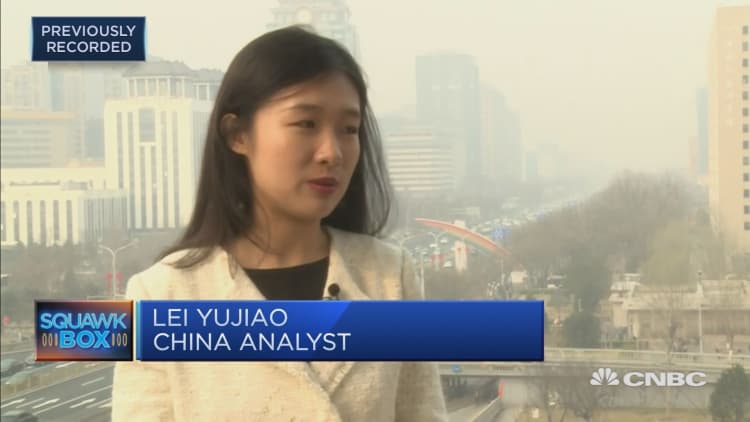
The Chinese government's policies toward electric vehicles are becoming more selective recently, signaling a push for higher performing models and potentially accelerate industry development, noted an analyst at Wood Mackenzie.
So while there have been reports that state subsidies for electric vehicles (EVs) could be cut soon, this isn't likely to slow down the momentum of the market there too much, Wood Mackenzie analyst Yujiao Lei told CNBC on Wednesday.
She explained: "That could potentially slow a little bit, but not by a lot because what we are seeing in recent months is that while earlier policies are promoting all the EVs, recently, policies have become more selective."
"So, like the latest subsidies in 2018, it actually favors higher performing EVs rather than the lower end models," Lei explained.
She added that the dual subsidy scheme due to kick in later this year, will actually favor higher performing electric vehicles as well, and potentially accelerate the industry.
The dual credit scheme for EVs, slated to be implemented in April, is a credit-based policy that rewards or penalizes carmakers based on fuel consumption and driving range. Credits can be bought or sold within the market to meet the government's targets.
As a result of the scheme, China has seen a surge in "investment announcements and partnership trends, which all show a good sign that companies are starting to make an effort to developing higher performing EV models," the analyst said.
Efforts are ongoing to draw drivers to buy electric vehicles, Lei observed. "We are seeing more and more cities starting to have driving restrictions or some policies to add value propositions to EVs to incentivize people to get an EV instead of a gasoline car."
Sales of electric vehicles have been strong in China, and is expected to continue increasing in the next decade. China has also overtaken the U.S. to become the world's largest EV market.
Controlling road congestion
Meanwhile, prospective electric car buyers in China may be affected by efforts to ease congestion.
"For mega-cities like Beijing and Shanghai, they don't only control the air pollution, but they also control the transport congestion. So they actually control the number of cars on the roads," Lei told CNBC.
The congestion problems in those mega-cities have seen purchasing and driving restrictions — usually reserved for traditional gasoline-powered cars — extended to EVs.
"In the past, we only had that for gasoline cars, but now, because more and more people want to buy EVs, it extended to EVs," Lei said.

